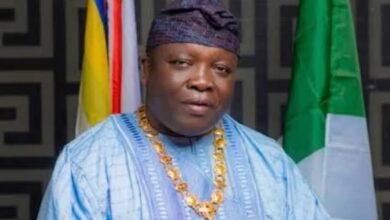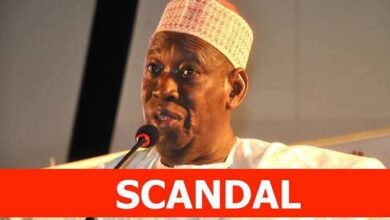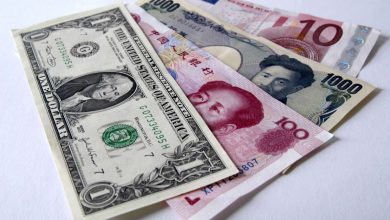UNITY BANK : A HOUSE BUILT ON THE SAND?

Is Tomi.Somefun , ,Managing Director/Chief Executive Officer, Unity Bank Plc ,really adding value to or destroying value of the businesses of the bank put under her control ?.
The above is just one of a barrage of questions agitating the minds of any informed observer ofUnity Bank’s corporate health status .For the past few years a large number of complaints and concerns have been raised over the financial position of the bank . But for the management, there is no cause for alarm. Where then does the truth lie ? To some analysts , Unity Bank is nothing but a mirror image of a house built on sands. This may not be farfetched. The bank has been operating with negative capital in the last few years.
Not only that. It relies heavily on government intervention funds allocated for certain economic sectors ,powerful individuals on its board are allegedly depended upon for its deposits instead of growing its deposits organically ; its cost to income remains industry worst while earnings and its exploits in the core banking or maturity transformation continue to raise eyebrow. A concerned foreign observer and analyst once reportedly asked , “how does a bank have negative shareholder funds of N278.64 bn and still stay in business?”
Unity Bank Plc from its conception depicts everything a laggard is to investors:heavy burden of loan loss impairments and non performing loans, outrageous cost to income ratio, declining or unimpressive gross earnings and deposits , and has refused to vacate thatstatus.
However , in 2018 , the management took a bold step of a book clean up exercise and raised some dose of optimism. This truly deleted its burden of bad loans but eventually chiseled down its capital to negative. The motive was to give the bank a fresh beginning; this is not a bad route out of the crises raging in the bank then .But the management inability to raise fresh capital to fill the chasm was its greatest undoing and a source of serious concern .
Sitting precariously on the cleave and hanging dangerously on a balance, the bank has kept increasing its negative shareholder funds year on year .
Between 2017 and 2019;its shareholders funds were N270 bn ,N284.37 bn and N278.68 bn in negative respectively As at the first half of 2020 it was N278.64 bn in negative, an amount enough to establish a new bank.
This has continued to raise another round of questions. Why are the investors , both at home and abroad, avoiding to bail it out? Are there some powerful insiders profiting from its present status and are desperate to maintain the status quo for personal interests? And moreover, why is the Central Bank of Nigeria not taking any decisive step to correct this error ? These are few among many questions whose answers are yet to be supplied.
A theory trailing the above fear was at a time dropped by a concerned analyst.By raising additional equity, existing shareholders can expect a major fall in their immediate return on Equity (ROE) and return on assets (ROA)..
Could this be the fear of some alleged powerful members of the board of this bank who,perhaps to retain their control of the bank ,are then frustrating external takeover ?
This may not be misplaced. Some analysts had warned the management to deal with issues related to ‘strong man’ influences on its Board with two past Presidents of the country having significant equity interests and Board presence in the lender. According to them this has had the impact of
creating challenges in respect of corporate governance and values, the presence of the former Nigerian leaders on the bank’s Board by proxy of their children, limits the Boards ability to take unfettered objective commercial decisions
With the delay in fixing the problem,the negative outlook of the shareholders fund has continued to wrecked havoc on the bank’s fortunes .The bank’s negative Returns on Equity, ROE, is a source of concern . The bank which is expected to create value has been doing the opposite for its shareholders.
But the management says the hope on the horizon is rising. That, arguably , could be true At the end of 2018 financial year its NPL ratio stood at 0.69 %.The bank’s impairment charges tumbled from N441 bn to N261.2 m to show the degree of massive clean up . The bank registered a profit of N3.64bn in 2019 from a loss of N7.55bn in 2018. Likewise, its profit increased in Q1 2020 to N550.07m from N505.29m in its half 2020 results.
Earlier in 2019 the management embarked on new strategic directions The bank adopted a niche approach to intensifying bank rivalry in 2018 ; it claimed to reduce cost to revenue ratio and identify an area of competitive market advantage, specifically a competence in agriculture lending and warm its way into a younger deposit-mobilizing demography
The adopted a niche-play generic strategy with the nexus between loan creation and gross earnings were tightly tethered to the agricultural sector and a mushrooming retail market. It also adopted a market penetration strategy that leverages a heavy retail presence in the country’s rural farming communities, especially in the country’s Northern states.
In a nutshell, the agenda of the management led by MrsSomefun was to give the focus or niche financing, rebranding and repositioning and to become an industry cost leader.
Even with the bank return to profitability from its loss position, some believed it was too cold for comfort. “Driving on fumes can be heart-pumping and exhilarating but it is not the best way to run a car”, an analyst declared .
He observed that making profit with negative shareholders funds might give a sense on invincibility until the cold fingers of reality grip the banks operations or the Central Bank of Nigeria (CBN) suddenly wakes up to a new regulatory impetus. Other analysts likened the bank to a bull in a china shop ,an equivalent of mere petrol fumes .
Moreover, to attribute the bank’s return to profitability to the ideas of differentiation, cost leadership and niche market agenda recently initiated by the management may be erroneous. Analysts believe Somefun is just like a manager who developed a stomach for emergency room surgery when confronted with competitive problems. Unity Bank plc ,no doubt , was buffeted with competitive problems of stagnant growth, declining margins and falling shares to say the least .What the Unity Bank’s management did was to carve away layers of corporate fat, jettison underperforming businesses and raise profitability. It did this successfully in 2018 by cleaning up the bank’s books and reducing it to a smaller size to create impression of efficiency and effectiveness. Masquerading under the names of differentiation, niche financing and cost leadership agenda the management has maintained its job and expectations and interests of the bank’s powerful shareholders . Somefun and others in the management team are not alone in that mindset .It is not surprising some powerful shareholder give moribund companies marching order to make companies lean and mean to make their assets sweat and get back to basics . The attraction of this management route is that raising net income which involves anticipating changing customer needs, investing preemptively in building new competencies and so on are likely to be a harder slog than cutting assets and headcount. The management of the bank cut heavily the entire equity to create impression of efficiency that manifested in its return to profitability.
Even some strategic decisions taken by the management have come under attacks . The logic behind such attacks was sequel to the delay in recapitalising the bank
.But analysts faulted her strategies.The survivaland success of organizations are influenced by their ability to respond to the competing pressures including changes in the environment, their strategic capabilities in terms of resources and competencies as well as their ability to meet stakeholders expectations. Where does Unity bank stand in terms resource and competencies as a niche player and differentiation? Even its strategic directions stated above are generating controversy. Some analysts maintained that generic strategies tend to have problems in environments where the rules of the competitive game are fluid, like when the game is no longer about brick and mortar competitiveness but the digital journey of customers and their expectations.
“The fact that banking has become a ‘commoditized’ service, a strategy of differentiation has become even harder to pursue for the likes of Unity Bank and its fellow tier 2 deposit money (DMB) counterparts”, they declared. Moreover, within any strategic group built on the idea of similarity of strategy among directly competing firms , there is evidence that successful strategies tend to be copied .For those that choose the path of differentiation some may outperform others ,but for some it will be their demise . Some strategy experts believe imitation and conformity may be a safe bet .
For the management of the bank , however, the above initiatives ,indeed, paid off .This created optimism around the bank and its CEO freely expressed it .MrsSomefuncommenting on the bank’s performance said: “Despite the inclement economic conditions occasioned by the global pandemic which almost paused or at best put activities at a slower pace in virtually all sectors of the economy, the Bank has been able to ride the waves to maintain its growth trajectory looking at the key performance indicators. .She stated that the health and strength of the Bank’s balance sheet is attributable to the fact that theBank has remained focused on its niche market,
But is the palaver over? Not yet so far . A look into the books of the bank confirmed as much .The singular issue negative equity has continued to stymie the destiny of Unity Bank in the last few years. Though liquidity has not been a problem, its weak equity position has served as a hindrance to its ability to expand its business.
This has continued to raise concerns over the bank’s operational stability. Niche players will be as successful as Dinosaurs but the lack of maneuverability in an intensely competitive digital financial space will squeeze niche market players until they cave in to the market power of their bigger rivals, a financial firm noted.
Also while the bank continued to increase its loans to its customers but its potential to do that is put under threat by negative equity. Since the clean up exercise on the bank’s non performing loan , the bank’s exploits in the core banking has taken an upward trend. From N8.9 billions in 2017 to N44billions in 2018 when the clean up was executed, the loans to its customers jumped N104 billions in 2019 .In the first half of 2020 a total of N131.5 billions compared to N70.6 billions in the corresponding period of 2019.
Its loans to deposits rate equally was on the rising mode .The bank’s LDR ratio rose by+40.37% in FYE 2019 from +17.8% in FYE 2018; it rose to 44% in the first half of 2020 from 29.70 % in the same period of 2019. From all indications the development was very positive.
.However, a careful look at the bank’s financials for 2019 reveals that the growth in its loans to customers was not matched by a corresponding growth in deposits received from customers. The bank’s loans to customers increased by+135.93% while its deposit from customers increased by+40.63%. The disparity between the growth of loans to customers and deposits from customers, raises the question of how Unity Bank was able to increase lending against slow growth in deposits. For lack of equity funds or its negativity ,the loan growth were largely intervention loans for Anchors Borrowers’ Programmes (ABP) of the CBN, as its deposits from customers did not record any significant increase between FYE 2018 and FYE 2019.
The bank’s capacity to exploit opportunities in the environment and make money is under serious problem purposely because of its negative equity. Gross Earnings fell from N89.9bn in 2017 to N37.3bn in 2018, representing a YoY dip of -58%.It rose to N44.6 billions in 2019 .In the half year 2020 it was N22.9 billions against N20.5 billions in the corresponding period of June 2019 .It declined to N11.00 billions from NN11.86 billions quarter on quarter basis this year .Unity Bank gross was the least in the industry.
Customer deposit dropped -4.11% from N252.3bn in 2017 to N241.9bn in 2018.In the half year 2020 it climbed by 27 percent to N306.47 billions compared to N242.22billionns in 2019 half year results
When its deposits from customers increased slightly to N257.69bn in FYE 2019 from N247.63bn in FYE 2018,the management was excited
The growth in the deposits of the bank and asset quality ,the bank noted , could be attributed to its growing agricultural lending niche, and improving brand franchise in the agricultural retail market value chain
But some analysts believed the rise in the bank’s deposits may be tied to institutional funds used for on-lending to designated economic sectors, in addition to secondary deposits by loan beneficiaries.
Asides, the management’s alleged too much reliance on some influential members of its board for deposits using their political patronage and influence is uncalled for. According to a financial firm the bank may also have to deal with issues related to ‘strong man’ influences on its Board with two past Presidents of the country having significant equity interests and Board presence in the lender. This allegedly had the impact of limiting the Boards ability to take unfettered objective commercial decisions
Its dependence on high levels of liquidity associated with the influence of a Board of Directors with top drawer political influence was inadequate to guarantee sustainability
Though it adjudged good but the bank, according to them , needs to grow its organic deposit base by increasing deposit market share as lending activities expand.
The core banking seemed to be showing some positive signals. Net interest income rose by 6.36% for H1 2020. The banks increase in net interest income suggests improvement in its core lending activities but intermediated loans can only be a short-term method of building the bank’s loan book and stabilizing its net interest income
The lower a bank’s cost to income ratio the better seems to be the state of its overall balance sheet and its capacity to withstand shocks.High cost to income is ,no doubt , caging the destiny of Unity Bank .Despite the management claim of cost containment , its cost profile remains outrageous. Though bank’s cost-to-income ratio dipped significantly to +77.88% in 2019 from +108.3% in 2018; it fell again to+84.62% in Q1 2020 from+86.46% recorded in Q1 2019.
The bank’s cost-to-income ratio increased to88.2%for H1 2020, from85.6%recorded in the corresponding quarter of the previous year. The high cost-to-income ratio could be attributed to increase in total operating expenses and the above rates remain among the industry worst .
Unity Bank will have to speedily resolve its equity deficiency and find a strategy that gives it sustainable competitive advantage beyond its agricultural lending niche.
The Board of the bank needs reconstitution in a manner that allows the lender leverage uncommon talent, innovative thinking and aggressive digital evolution in a fluid market space
The bank will need both rebranding and repositioning to grow a sizeable deposit base on a sustained basis, the bank will need to achieve a careful mix of growth in demand and savings account deposits to reduce interest expense and widen net interest income
The bank assets and liabilities management needs to be handled strategically to allow for a steady growth in the bank’s loan portfolio devoid of “low base effects” and a rise in low cost deposits




